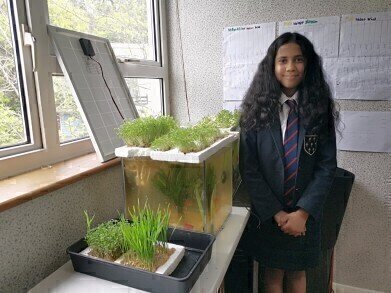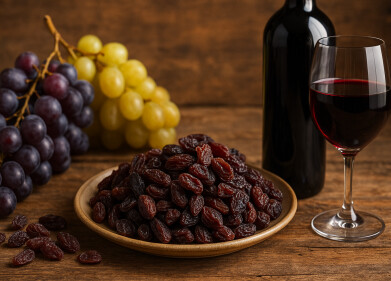-
 Chris Kalogroulis
Chris Kalogroulis -
 Diya Vincent
Diya Vincent
News
Microgreens and Mechanical Clock Take Big Bang Accolades
May 27 2020
Congratulations go to Diya Vincent, a Year 7 student from Sevenoaks School in Kent and Chris Kalogroulis, a first year student studying Design Engineering at Imperial College London who were named GSK UK Young Scientist and GSK UK young Engineer earlier this year.
In her project, ‘Microgreens from Goldfish’, Diya, aged 12, grew microgreens using fertilised water from an aquarium and then compared them using three different methods. The first method grows microgreens in a neutral medium with unfertilised water. The second method utilises water from an aquarium which is naturally fertilised with fish waste and absorbs water via cloth wicks toward the plant roots. The third method also uses fertilised fish water, but with the water flowing continuously around plant roots, thanks to a solar panel powering a water pump. Diya, the GSK UK Young Scientist of the Year, concluded that method three is the fastest, delivering a harvest of microgreens, like cress, to the family salad bowl within 10 days.
GSK UK Young Engineer of the Year Chris,18, created a striking, sustainable and minimalist mechanical clock for his project ‘Flip’. Chris wanted to create a product which has an aesthetic appeal but one that would allow him to learn and apply mechanics, electronics and programming.
Chris was previously crowned Intermediate Engineering Winner at The Big Bang Competition UK finals in 2017 for his Stackamals project, comprised of 3D animal models made by stacking layers of birch plywood together to create stunning models with hidden storage – similar to Flip they also used a series of magnets. On completion of university, Chris plans to apply the skills he’s learnt to open a business with his brother, to design and create more great products for people have in their homes.
Over 300 young people from across the country were selected to be digital finalists of The Big Bang Competition, an annual contest designed to recognise and reward young people's achievements in all areas of science, technology, engineering and maths. The students win £2,000 in prize money to continue on their STEM journey as well as a trophy and certificate.
Digital Edition
Lab Asia Dec 2025
December 2025
Chromatography Articles- Cutting-edge sample preparation tools help laboratories to stay ahead of the curveMass Spectrometry & Spectroscopy Articles- Unlocking the complexity of metabolomics: Pushi...
View all digital editions
Events
Jan 21 2026 Tokyo, Japan
Jan 28 2026 Tokyo, Japan
Jan 29 2026 New Delhi, India
Feb 07 2026 Boston, MA, USA
Asia Pharma Expo/Asia Lab Expo
Feb 12 2026 Dhaka, Bangladesh


















